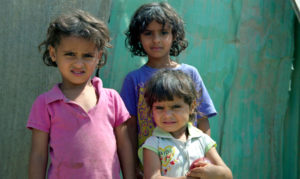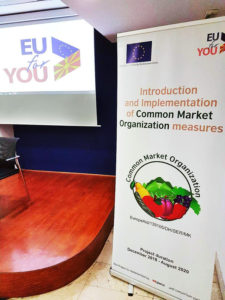
Technical Assistance to Support the Implementation of the Rural Development Sector Development Programme (Phase 1 + 2)
After the positive vote of the Turkish Cypriot community in the 2004 referendum to reunite the island, the European Council decided to end the isolation of the Turkish Cypriot Community and facilitate its integration with the EU. Therefore, the purpose of the project was to improve socio-economic conditions

Technical Assistance for Support to the Local Human Rights Boards and Women’s Rights Awareness
Despite laws being passed in the 1990s to eliminate discrimination against women and a law to protect survivors of domestic violence being enacted in 1998, the country lags behind in implementing its national and international gender equality commitments. Women in Turkey continue to face challenges, with gender-based violence

Improvement of Legislation, Control and Awareness in Food Safety, Animal Health and Welfare in Ukraine
The project aims to support the implementation of the Association Agreement’s provisions between the EU and Ukraine concerning food safety, animal health, and welfare.

Reinforcement of the National Social Security Fund (NSSF) in Lebanon
In Lebanon, there is no comprehensive national policy to fight poverty and a particular, effective social security system for poor people. Without improvements, Lebanon cannot hope to move towards realistically integrated and adequate social protection interventions. Thus, the project aimed to contribute to improving the quality and coverage

Implementation of Common Market Organisations (CMO) in the Former Yugoslav Republic of Macedonia
The project’s overall objective is to increase marketing opportunities, economic development and overall productivity in the agricultural sector of North Macedonia while improving competitiveness of the agriculture sector in the country in line with EU accession requirements.

Technical Assistance for Promoting Social Inclusion in Densely Roma Populated Areas
It’s an obvious fact that there is a need to increase social inclusion in heavily populated areas, particularly in Rome, mainly by facilitating their entrance into the formal labour market. Within this context, the project aimed to support Rome’s population by improving the quality of education delivery, vocational

